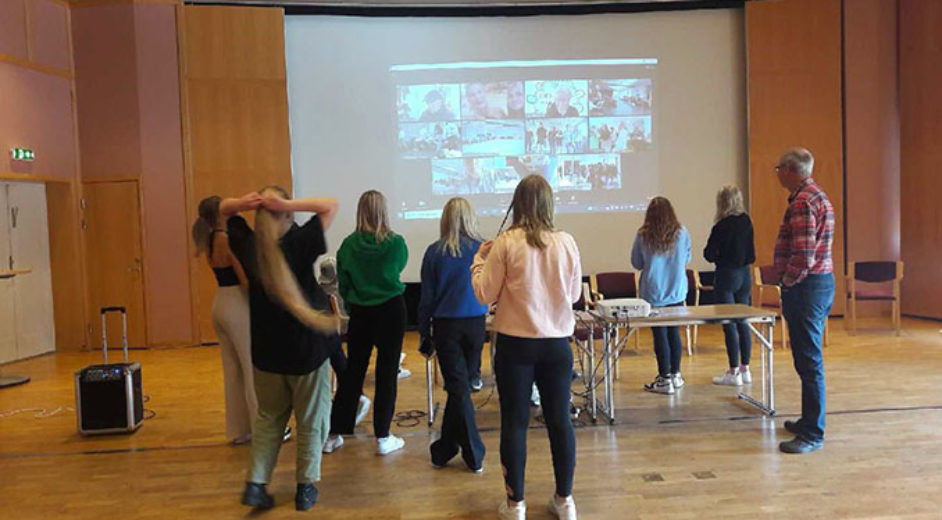Culture and climate unite pupils on school exchanges
By Kristina Wall at the Swedish Council for Higher Education
At Änget School in Örnsköldsvik, classes in Year Eight participate in exchanges with schools in countries around the Baltic Sea. These partnerships provide invaluable knowledge about culture and the climate.
Änget School has worked with this school exchange as part of the Nordplus Junior programme for several years. The participants are compulsory schools in the countries around the Baltic Sea – Estonia, Latvia, Lithuania, Finland, Denmark, Poland and Sweden. A coordinator is based in Denmark, to schedule when the various exchanges will take place (a week at a time) and book activities.
The aim is that, during their exchange weeks, pupils will learn more about the climate and other cultures and find ways to influence climate change in partnership with pupils from other countries.
Maria Gulliksson teaches social study subjects and Spanish, and has participated in an exchange four times, although the last three were digital because of the pandemic.
“The pupils did group work about the environment at their schools and then discussed it in digital meetings,” she says. “For example, they measured the environmental impact of the food we eat, and compared a vegetarian week and one with meat. They cooked the food at a local farm. The pupils have also compared waste management in different countries.”
Dance at a distance
One way of getting to know each other’s cultures has been through dance. In Örnsköldsvik, a danish teacher held dance workshops with pupils in Year Seven. The pupils danced for half days and gave a performance at the end of the week.
“This was both a cultural exchange and a challenge, because the teacher only spoke English,” says Maria Gulliksson. “The pupils who did the group work and danced have become close, and many of them stay in contact with pupils in other countries after the exchange has finished.”
The last exchange was in the middle of the pandemic, and the pupils had distanced dance with a teacher from the UK. They danced in front of a screen in the classroom, something that Maria Gulliksson says worked fine.
Successful so far
Maria Gulliksson thinks that this way of working has been successful:
“I think that we have achieved the goals we set and that it is rewarding. Naturally, the pupils think that travelling abroad is cool, but those who worked remotely have still developed and enjoyed it. Another teacher and I needed to put in a lot of time, but it is worth the effort – internationalisation is important now!”
In May, Änget School will host the exchange and the hope is that 15 pupils from Finland, Denmark, Latvia and Lithuania will visit. That will be a total of 80 participants. Digital meetings will be held again at the end of September, including warm-ups (see picture).
